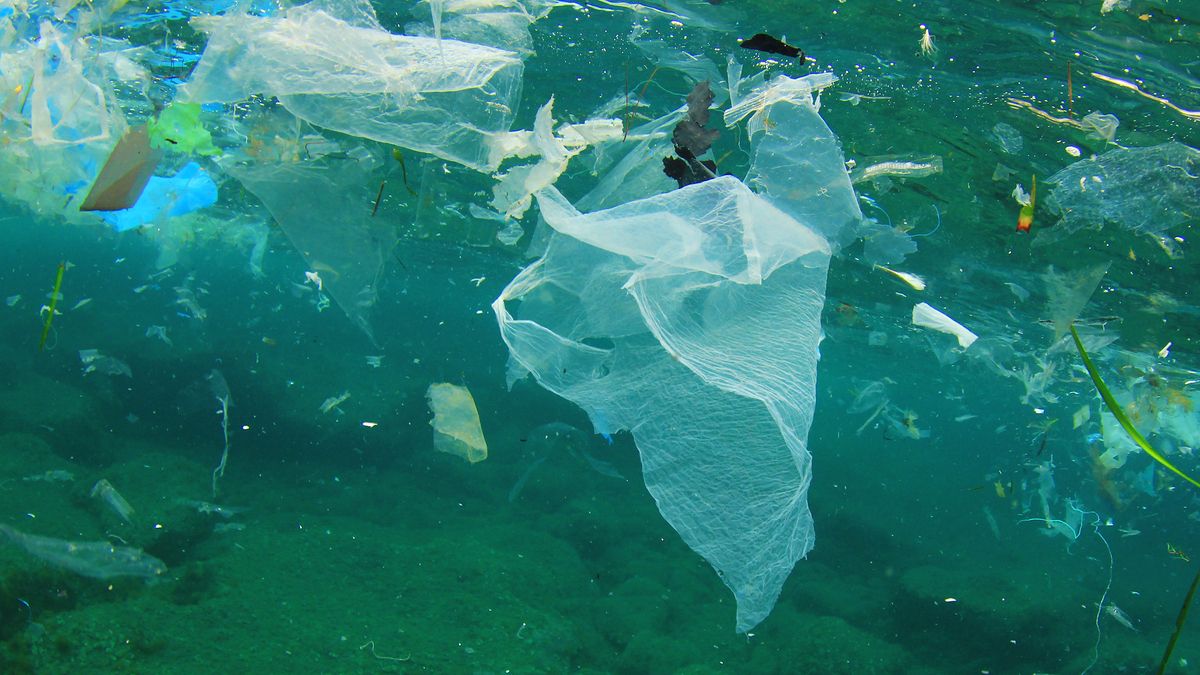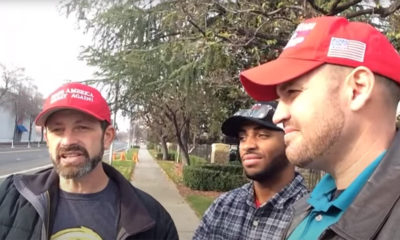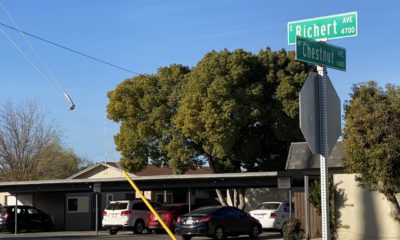Latest
Is California's Controversial Plastic Bag Ban Working?
Published
7 years agoon

Is California’s statewide plastic bag ban working?
The proponents enthusiastically say yes.
But it’s impossible to determine what grocers are doing with the 10 cents they’re collecting for every paper bag they sell.
Initially passed in 2014 as SB 270, most grocery stores could no longer give away plastic bags. Only recycled plastic bags meeting certain environmental standards and paper bags would be allowed. Plus stores would charge a minimum of a dime per bag. The law mandated that the recycled plastic bags shall be constructed to be used 125 times.
Moreover, the law goes beyond just grocery stores. Pharmacies, convenience stores and liquor stores are included. Local cities and counties could impose tighter restrictions, but that hasn’t been done in Fresno and the Central Valley.
San Francisco became the first city to set local rules, passing a bag ban in 2007.
The law specifies what bags can and cannot be used, and how the money stores collect is supposed to be used. However, there is no system to track progress or conduct audits.
“The Single-Use Carryout Bag Ban statute does not include any reporting requirements for regulated entities,” CalRecycle spokesman Mark Oldfield said. “Although stores are not required to report information regarding bag sales and usage to CalRecycle, staff is preparing a legislative report (due by March 1, 2018) that will include the results of an informal survey conducted by the department.”
CalRecycle said its role in regulating the bag ban is to certify third-party manufacturers of reusable bags. Those regulations should come out this year.
The law also had specific requirements on the how the dime per bag could be spent, namely only on recovering the actual costs of the bags or spending on a “store’s educational materials or educational campaign encouraging the use of reusable grocery bags.”
GV Wire asked many of the state’s major retailers, such as Target, SaveMart, Albertsons and Smart & Final for figures on how many bags they sold and what they have done with the money. They either failed to reply to GV Wire’s request for information or outright refused to answer.
Implementation Initially Delayed
The law’s implementation was delayed until a statewide referendum (Proposition 67) in November 2016, pushed by plastic bag producers. Voters kept the law, with 52% in favor.
Many local jurisdictions already had a ban, making the statewide ban moot in those areas. But for places like Fresno, the decades-old grocery store practice of bags at no extra charge ceased. Most of the local jurisdictions banning bags were in southern California, the Central Coast or the Bay Area; none was in the Central Valley.
“Since its implementation one year ago, the grocery industry has seen little change resulting from the statewide law regarding carryout bags. When the law went into effect there were already nearly 150 California cities and counties (almost half of the state’s population) that had implemented their own ordinance,” said Ron Fong, President/CEO of the CGA.
“Because of this, many Californians understood their options well before the law came into effect statewide. This allowed both consumers and stores to quickly adjust to the new process — with many shoppers choosing to bring their own reusable bag with little fanfare and many grocers already having systems in place to comply with the law.”
Praise for the Law
But the lack of record keeping does not bother the bill’s author, Alex Padilla, now the California Secretary of State.
“The bag ban has been a clear win for our environment and our economy, as less taxpayer dollars are spent cleaning up pollution and litter caused by plastic bags,” Padilla said.
“California is quickly moving past the era of single-use plastic bags,” he continued. “For too long, plastic blight plagued our coastline and inland communities alike. These bags wreak havoc on our ecosystems, threatening wildlife and California’s natural beauty.
Mark Murray is executive director of Californians Against Waste, which supported Prop. 67. The group is happy about the early results.
“Overall, this was a big transformation. A state of 39 million people went from having single-use plastic grocery bags that they’ve had for four decades to now moving to reusable bags, recycled paper bags. The transition has gone quite smoother than many of us thought,” Murray said.
California Manufacturers & Technology Association opposed Prop. 67, but declined to comment on its effectiveness one year later.
Cleanup Stats
Many of the plastic bag ban supporters pointed to statistics provided from the annual Coastal Cleanup Day as proof of the ban’s effectiveness.
In 2010, volunteers picked up 65,736 bags in and around beaches. That was the No. 2 item collected.
Seven years later in 2017, 11,847 were found, falling to No. 10 on the list.
Cashing in?
One of the arguments used by Prop. 67 opponents was that grocery stores would profit from collecting a dime per bag.
Despite silence from the grocery store industry, Murray says that 10 cents is about what it costs to implement the reusable bag program.
He noted that customers used 35 million single-use plastic bags a day; now they don’t.
“Those single-use bags are gone,” Murray said.
David Taub has spent most of his career in journalism behind the scenes working as a TV assignment editor and radio producer. For more than a decade, he has worked in the Fresno market with such stops at KSEE-24, KMJ and Power Talk 96.7. Taub also worked the production and support side of some of TV sports biggest events including the Super Bowl, the NBA Finals and NASCAR to name a few. Taub graduated from the University of Michigan with dual degrees in communications and political science. You can contact David at 559-492-4037 or at Send an Email

You may like
-


From Valley Farms to the Capitol: Ramirez Is Key Part of Biden’s Team
-


Conservative Trio Return to Arias’ Home. He Wasn’t There.
-


Dictos Wants to End Stain of Fresno’s Discriminatory Housing Covenants
-


Fresno’s George Whitmore, Legendary Climber of El Capitan and Conservationist, Dies at 89
-


OPINION: Measure P Failed – and Supreme Court Must Uphold This Fact. If Not, Hold On to Your Wallets.
-


They Made Fresno’s News in 2020. Who Is No. 1?













Monadnock Man
January 9, 2018 at 11:48 am
Ask San Diego County/City about this ban! The leadership noted the ban is a significant contributor to their Hepatitis A situation. Liberals never look beyond the first sentence of any of their laws which that without question eliminates the review of the most egregious resultant of poorly written legislation ‘the unintended consequences’! The two links below confirm my statement.
https://www.sandiegoreader.com/news/2017/sep/08/stringers-plastic-bag-ban-led-hep-health-crisis/#
http://www.sandiegouniontribune.com/news/hepatitis-crisis/sd-me-hepatitis-how-20170923-story.html
lillian taylor
January 10, 2018 at 10:36 am
i agree with your statement. the amount of pollution taking place is outrageous.
Francine Farber
January 9, 2018 at 11:55 am
I thought I saw a story this morning about the FUSD board meeting tomorrow night, but now I can’t find it. Was it deleted or was I imagining it?
Thank you.
Lee
January 10, 2018 at 4:23 pm
Hi, can you clarify and expand on the difference between “They either failed to reply to GV Wire’s request for information or outright refused to answer.”
David Taub
January 10, 2018 at 4:45 pm
Some of the grocery stores we contacted never returned our calls or e-mails. Some said they would not share that information with us.
Neha
February 12, 2019 at 1:21 am
Truly insightful read! Inspired by California, recently, New Jersey has been making headlines with the authorities proposing the strictest regulations in the nation on single-use plastics.